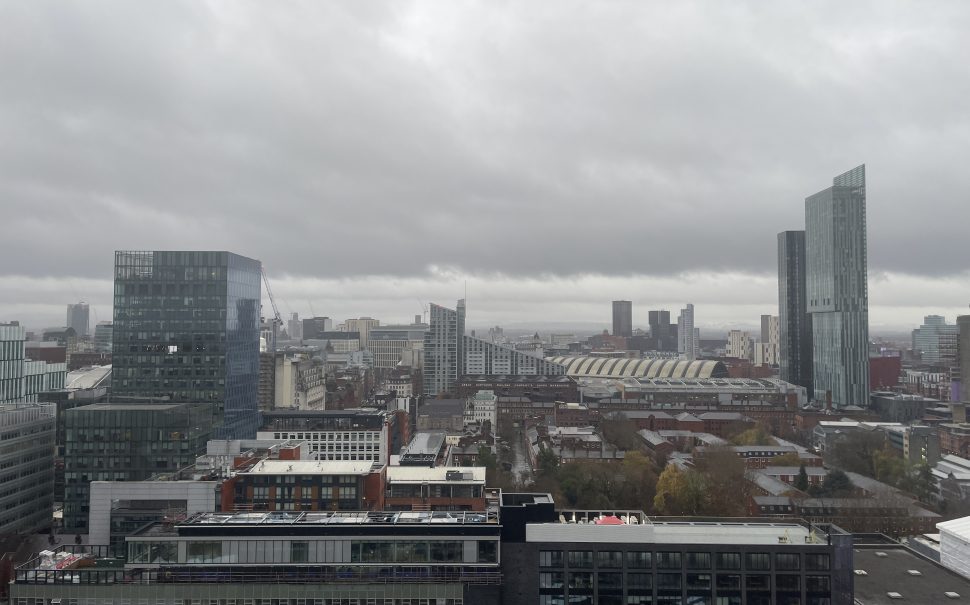Manchester is the second most expensive place to rent – relative to wage – according to data released by the Office for National Statistics.
Residents of the North West borough saw 45.6% of their income go towards rent in 2023.
While Kensington and Chelsea renters saw the highest percentage of their wages going on rent – at 52.2% – Mancunians were close behind.
These figures are the result of calculating the percentage of the privately-renting household income that is equivalent to monthly rent for an area.
Of the five current most expensive places to rent, Manchester was the only place that became more expensive each year – increasing by 29.2 per cent between 2018 and 2023.
Hamayun Ahmed – a landlord of 30 years – owns properties in areas such as Longsight and Whitefield.
The 65-year-old said: “Prices in Manchester are ridiculous.
“It’s very difficult on the property ladder as now, households have to have two people earning to buy a decent enough property.”
Ahmed added: “A one-bedroom flat that now costs £900 would have cost £200 for that same apartment 20 years ago.
“Salaries haven’t gone up in line with house prices, and the government aren’t building enough houses for people at the beginning of their careers, so prices are high because the stock is low.
“I think renting is going to get worse, you’re never going to get people’s salaries in proportion with house prices, as someone earning £70,000 a year would be looking at a £500,000 property.”
Areas of Greater Manchester have also seen more of their income go towards rent.
Trafford had the 10th most expensive rent to wage ratio in England and Wales at 40.1% – the second highest in the entire North West.
Tirion Thomas, 21, is a postgraduate student at The University of Manchester who tells how it has become increasingly hard to pay rent in Manchester during her journey of study.
She was living in Fallowfield paying £480 per month to rent in her second year, which rose to £650 per month when she moved to her house in Withington for her third-year studies.
After completing her undergraduate degree, Tirion has stayed in Manchester to pursue a master’s degree, which has seen her rent an apartment in the heart of Manchester city centre.
Tirion said: “I’m now paying £1,000 a month in rent at the place I’m currently at which is the cut-off point for my budget.”
She stressed how her current rent price in Manchester has made it hard to stick to her goal of trying to save money to put towards a house after her master’s graduation.
Tirion added: “It’s annoying to have had to go into my savings to pay for the rent at my current place. I didn’t want to go into my savings again as I’d already done this when I went travelling in summer this year.”
Councillor Richard Kilpatrick sits on Manchester City Council’s Planning and Highways committee – who use the H8 policy to aid the building of affordable properties.
The policy sets out the grounds for building properties, with developers being expected to use a 20 per cent target to provide affordable housing.
Coun Kilpatrick said: “The problem with not being strict on the H8 policy is that it hikes up rent prices for every development that is put into Manchester that doesn’t have any affordable element to it.”
The Didsbury West representative also emphasised how rare it is for Manchester City Council to receive planning applications with affordable prices – and how this the echoes rental affordability issues in West London.
Coun Kilpatrick said: “45.6% of income going solely rent is a symptom of something we’ve got seriously wrong in Manchester, because then we’re looking at circa 60 or 70% of that person’s wage going on just existing.
“The fact we’re second to Kensington and Chelsea shows that we had an opportunity to learn from London’s mistakes, where people stay for five or six years and then move out.”
“For Manchester’s economic future, we need to create housing that is for people to live the rest of their lives in Manchester so that they can contribute to our economy.”
More planning applications are aiding the building of high-rise flats in Manchester’s city centre, which don’t often have affordable units in them.
Coun Kilpatrick added: “We need much stronger legislation, and I think that’s something the government needs to answer.
“If you’re building high rise flats, it gives developers the chance to get out of the affordable housing requirement on viability grounds due to land value being high in the city.
“This younger generation have a much harder deal of getting on the housing market and if we don’t do something about this, we will actually start to create a societal problem such as social isolation issues, mental health issues, and I think that all of this sort of thing is linked.
“Manchester is a city that is at its best when people have enough money and expendable income to thrive.”




